Nu pierdeți cele mai bune locuri de muncă!
Abonează-te și săptămânal iți vom trimite un email cu ultimele locuri de muncă disponibile. Introdu adresa ta de email mai jos
There are different strategies when it comes to taking off into the world with your life tucked into one backpack. Some people choose to work for a few months prior, saving a large sum of money that then allows them to travel for an extended period of time without worrying about money, as long as they stick to their budget. Another approach is to save up a realistic amount of money, with the intention to acquire a job abroad and having a sustainable source of income to keep their travels afloat. Some nomads even choose to simply hit the road with the most minimal amount of money possible and place their bets on future employment that they may have already secured or are at least prepared to find once they arrive in the country.
Although the important aspect of having a legal work permit or work visa does come into play, it all depends on the country and the type of work you are getting involved with. If you are in Australia and have a working holiday visa, the majority of establishments are experienced with backpackers looking for casual work and have a system ironed out. However, some destinations do not have such an easy process for foreigners to get a work permit, in which case you will have to do work that requires less paper work processing, and by less, potentially none in some cases. Simple and straightforward jobs where you can be paid in cash are your best bet when it comes to a country where obtaining a work permit is near impossible.
Below are the top four most backpacker friendly positions that can help you get a leg up financially while you’re travelling.
Bar Tending
Bartending in itself is a unique job that lets you party till the wee hours of the morning, do what you want during the day (usually sleep and sunbathe on the beach) and then rock up for another night of rowdiness. Positions are easy to gain and easy to leave, since the skills required of a bar tender are fairly straightforward anywhere you go. If you have experience as a bar tender prior to traveling, you’ll definitely have the upper hand, but even if you’ve never been behind a bar slinging bottles, learning how to mix drinks is not brain surgery. Given that the bar tending industry is heavily reliant on tourists, if you are interested in finding a bar tending job, it is best to arrive slightly before the season begins, and walk into bars inquiring if they have any positions opening. Typically, bars don’t care for a resume as much as they do for a competent, fun, hardworking applicant who shows up ready to work, but it never hurts to bring along a hard copy of your resume.
It is important to be prepared for the amount of alcohol you will be consuming each night, so if you are more of a stay at home Friday night kind of person, then this may not be the best fit for you, in fact many employers will interview you by seeing how much alcohol you can take while still being functional. Other jobs related to bar tending include promoters who hand out flyers and draw people into the bar and the girls that are paid to dance and get guys to buy them drinks.
A similar job to the nocturnal bartender is working as a barista, which in a way is a day time bar tender. Coffee and other café drinks vary in terminology all over the world, and each country has their own methods of preparation, but once you have an idea of how this position works with fast paced drink preparation and using an espresso machine, you’re usually solid to work anywhere. Americans have drip coffee, while Australians have flat whites and the Italians are the original masters of espressos, so just be sure to brush up on the local drinks before going in for an internview.
Housekeeping
Hostels are the sanctuaries for many tired backpackers, but who was it that changed the sheets on your bed after the last recharged traveller departed on their way? Someone’s got to do it, and it could be you. Have you made your bed at home, ever, in your entire life? Yes? You’re hired. Hostels are attuned to the needs of transient backpackers, which is why they often offer housekeeping positions to travellers looking to do a work trade for a place to sleep for a few weeks or months. You may not be making money, but without the additional cost of affording a room, your budget will survive much longer than if you had to shell out daily dues for a dwelling.
Responsibilities as a housekeeper usually include sweeping & mopping floors, scrubbing bathrooms, changing sheets, picking up empty beer cans and finding tons of lost traveller gear in the nooks and crannies of the rooms you clean (dibs on the new headlamp). If you are able bodied and have enough discipline to show up for work and get the job taken care of, house keeping may be one of the best travel solutions to keep your wallet happy. If you are one of the messiest people to ever walk the earth, then you might think about working as a receptionist. It doesn’t hurt either that since you aren’t receiving any money, you are not legally working, thus no need to fret over getting a work permit.
Restaurant Server & Other Food Service Positions
A sense of expediency, balance, hygiene and a relatively pleasant attitude will score you a job at a small café or chain restaurant, but if you have experience working as a server then by all means head for the big bucks at fine dining establishments. Just be prepared for the higher standards that come with higher prices, but this usually means higher wages for you!
Restaurants will typically look to hire someone for at least a few months, depending on their location, usually just for the busy tourist season. Applying to work at restaurants is another case where emailing beforehand is not your best plan of attack- rather confidently striding up to the establishment with your best smile, cleanest and best smelling attire and a resume in hand. If you don’t have a resume or are at a loss for finding one, you’ll be relying on your personality, so shine bright! Half of serving is being an agreeable, sensible customer service savvy individual and the other half is showing up and doing what your manager tells you. If this is too much for you, or perhaps you just don’t have the muscles to lift those heavy plates of food, some restaurants also hire hostesses, usually cute girls, to draw customers in and to provide an introductory customer service experience. If you simply aren’t interested in dealing with people, many a nomad has picked up the fail-safe position as dishwasher, where you don’t even need to be able to speak the local language and can just put on your headphones and focus on the suds in front of you.
Wages in restaurant jobs vary from country to country. Most usually pay a minimum wage, but sometimes due to work permit restrictions, you’ll work for cash tips, which is how you can by pass the whole work permit puzzle. It also doesn’t hurt that working in a food based industry, you usually get at least a discounted or complimentary meal for every shift you work. My personal tip for making the most out of your restaurant work experience is to make friends with the kitchen staff who can seriously hook you up with the left overs and mistake orders.
Farming
If you aren't afraid to get your hands dirty, then you might want to think about getting involved with a farming community while you are abroad. Many farms these days do not require previous experience and are more than enthusiastic to spread the love of growing your own food and teaching agricultural know-how to new farm hands. These days, you can find farms that specialize in vegetables, fruits, flowers, livestock, a combination of specialities and even farms that concentrate on a certain style of raising their crops such as permaculture. For people who want to be away from the hustle and bustle of cities or those who wouldn’t be caught dead in a cubicle, farming is a brilliant way to explore lesser travelled areas of the world. It is also a spectacular way to develop your knowledge about the importance of how food is grown and where it comes from, and getting in touch with the land by getting dirt under your fingernails and experiencing a more primitive style of living.
Each country has its own methods when it comes to farming opportunities for backpackers, but one of the most universal systems is through World Wide Opportunities on Organic Farms, otherwise known as WWOOF. WWOOFing is an amazing way to travel, while earning accommodations through valuable farming work experiences. The WWOOF program is designed for volunteers to work in exchange for allowance to set up a tent on the farmland property or sometimes the farm owners provide housing. In some cases, food is also included in the exchange for working on the farm, and who wouldn’t want to consume fresh veggies and fruits you picked yourself just before the meal?
Other Tips For Getting A Job
Before heading out here are a few tid-bits of advice that can help your job hunt go a little smoother:
- Prepare your CV and bring printed copies that you can hand out to prospective employers. These days, printed copies are rare, but by handing them an actual piece of paper, you will stand out against a crowded inbox of applicant emails, especially because they will be able to place a face with a tangible resume.
- Networking is one of the ultimate ways to find a job. Head into a hostel, chat up the manager of a restaurant or bar, and just by being your self and showing interest, opportunities can float your way. Even if you aren’t talking to someone who could directly offer you a position, chatting with staff might give you the inside tip that they are looking to hire someone.
- Be humble when it comes to searching for jobs, because chances are that you won’t be pursuing your dream job (though for some this might be the case, congratulations to you guys) because right now your objective is to travel and this job is meant to be a way to support your endeavours. There is definitely a palpable way to pursue your dream job and successfully work and live abroad, but backpackers are typically individuals living a transient lifestyle. If I only stuck to jobs that related to my future career, I would have never had the opportunity to work as at a bar in Australia, that was themed as an American country bar and required to dress as a cowgirl (hat and plaid shirt included) while I served curries and pizzas- a job which I will most likely never ever do again in my life. Check your ego at the door, and do what you have to do to survive out there.
- Sometimes jobs might not be available in the immediate area that you have landed, but traveling just slightly out of the center of town might yield more opportunities since less applicants are heading out that way.
- Related to number #4, don’t limit yourself to the positions mentioned in this article. There are absolutely unlimited options when it comes to short-term employment, anything from event staff, to tour guides, to water related instructor jobs and so much more. Think about what skills you have to offer, something you enjoy and pursue the opportunities in the area.
- Don’t forget to have fun! Working while backpacking around the globe is a way to keep your travelling passions afloat, not a way to tie yourself down and keep you from exploring the world you set out to discover in the first place! Respect your commitment to your employer, but don’t forget to get out there and satiate that sense of global wonder you set out with.
Sign in to publish a comment
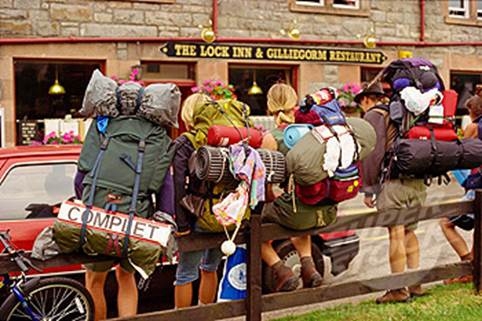

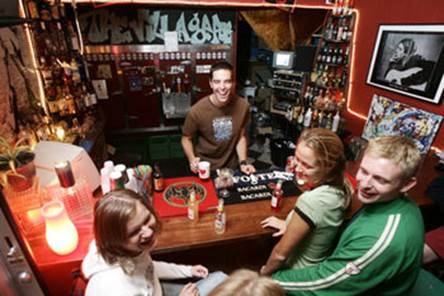

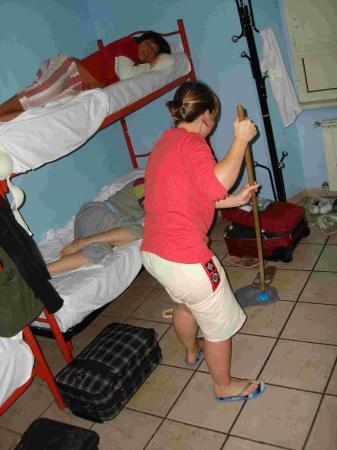
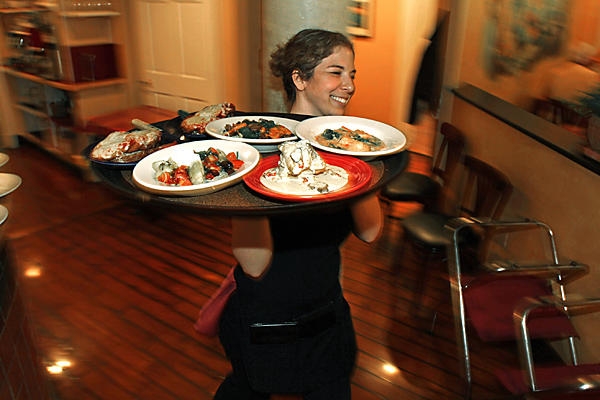

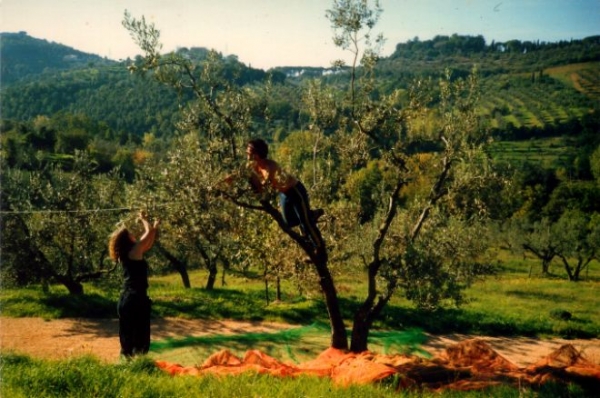
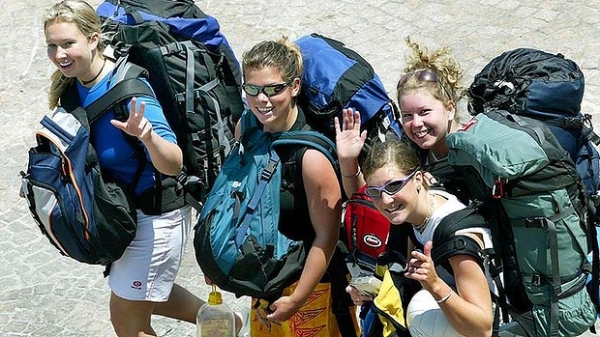
Be the first to comment on this post.